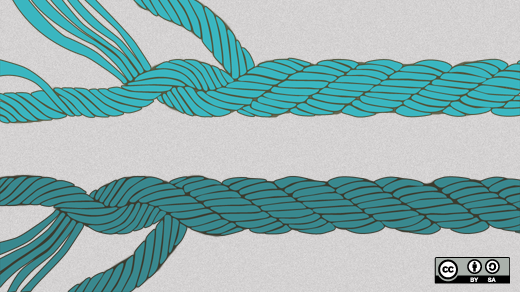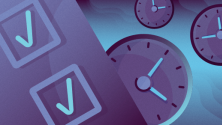Last month, this site featured an article about the startup I work for, Unglue.it. Briefly, we think more books should be available to the world under Creative Commons licenses, and we think authors and publishers should be paid for their work. We're doing this through a crowdfunding model: raise enough money up front to make it worthwhile, and there's no reason for authors and publishers not to make their books freely available to all. Of course, any innovative model inspires many questions, but the most common questions we get have been about open culture—from widely differing perspectives. Opensource.com has asked me to share some of what we've learned since Unglue.it completed its first successful campaign.
On the one hand, people unfamiliar with (and sometimes hostile to) openness ask: Why should people pay thousands of dollars toward ungluing campaigns when they can get the book for just a couple bucks? Isn't it readily available already? Of course, you know that's not true. Even modest purchase prices may be out of reach for some, and for books, territorial rights restrictions mean they may not be legally available in all regions. More importantly, copyright law—and often, for ebooks, licensing restrictions—severely limit what you can do with an ebook, and even whether you own it. Finally, putting a few dollars toward buying a book means you have a book; putting those dollars toward ungluing a book makes that book available for everyone. Openness is about generosity.
On the other hand, we get questions from free culture advocates, wanting to know why we allow Creative Commons NC and ND licenses. While we're completely happy to support campaigns with BY, BY-NC, or CC0 licenses—and in fact our first successful campaign features a CC BY license—there are two important reasons to allow not wholly libre licenses.
First, this is a new model. Authors and publishers are used to getting paid via a stream of per-sale royalties that may continue for decades. Having an unglued edition means potentially trading off that familiar revenue stream for an up-front sum. Furthermore, they're used to a few smash hits subsidizing everything else; giving up rights can feel like giving up the chance that this book will someday be that hit. Letting people keep certain rights—commercial exploitation, film and translation rights—reassures them that they haven't sold out their livelihoods. It also drives the price of ungluing campaigns down. In short, allowing for diverse licenses lets more works be unglued.
Second, Unglue.it's roots are in the library world, where restrictions on ebook usage are overwhelming. Did you know that four of the Big 6 publishers won't sell ebooks to libraries at all? (Of the 2 remaining, one only sells ebooks that self-destruct after 26 checkouts, and the other recently tripled its library prices.) Or that publishers sued a university for making ebooks available through its library reserves system?
In that context, even the most restrictive of Creative Commons licenses provide a radical step forward. They let libraries fulfil their missions without fear of being sued. Even if NC or ND licenses restrict some personal uses, I trust we all have an interest in libraries being able to acquire, distribute, and base programming on books, and on educators being able to incorporate them in their curricula.
Ironically, what I've learned is that the answer to questions from both free culture fans and people ignorant of the benefits of open source is the same: education.
Explain to people the benefits of open (or open-er) licensing. Show people how deeply, and sometimes shockingly, the status quo of intellectual property limits us all. Paint a picture of a better world.







Comments are closed.